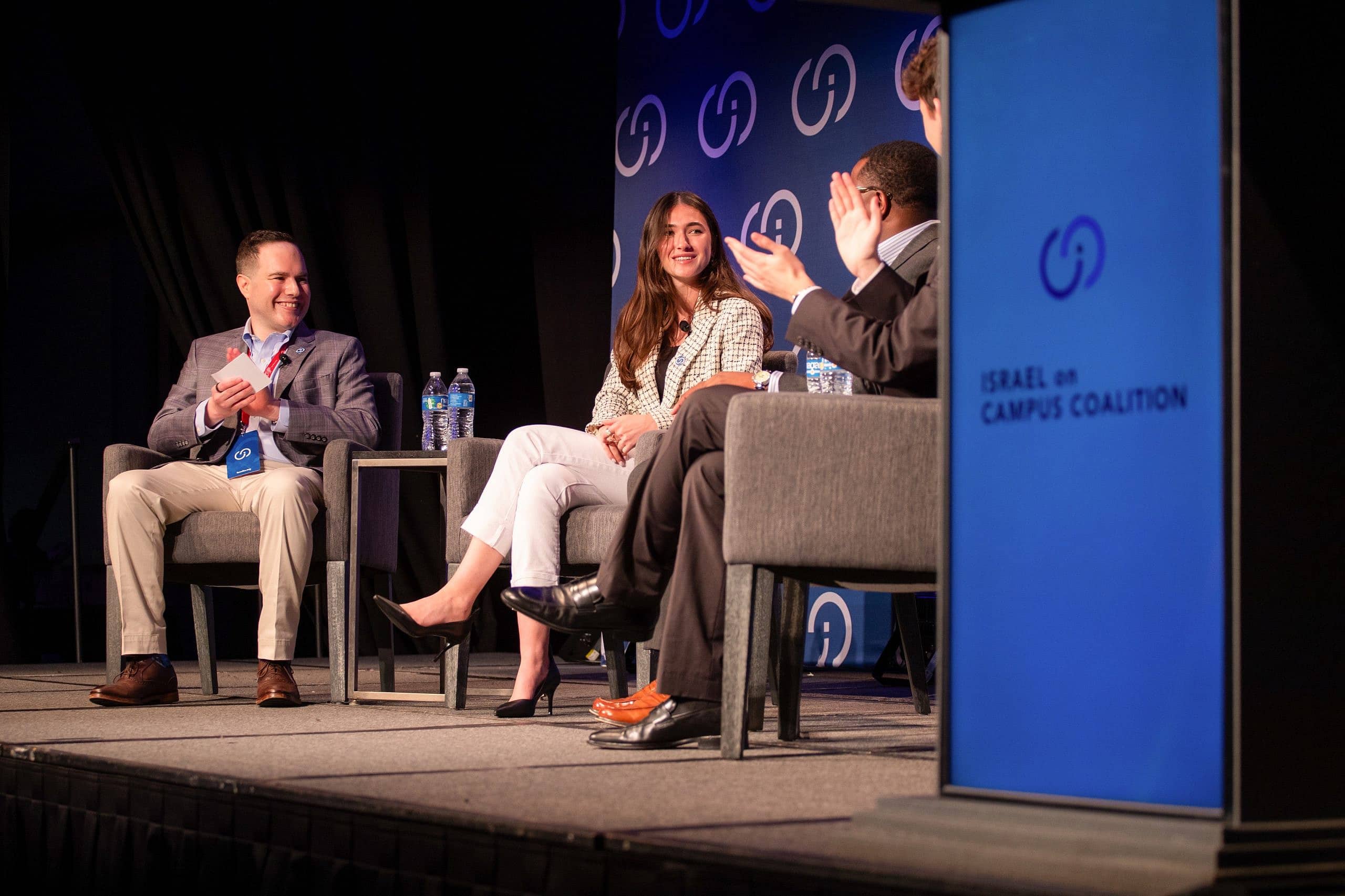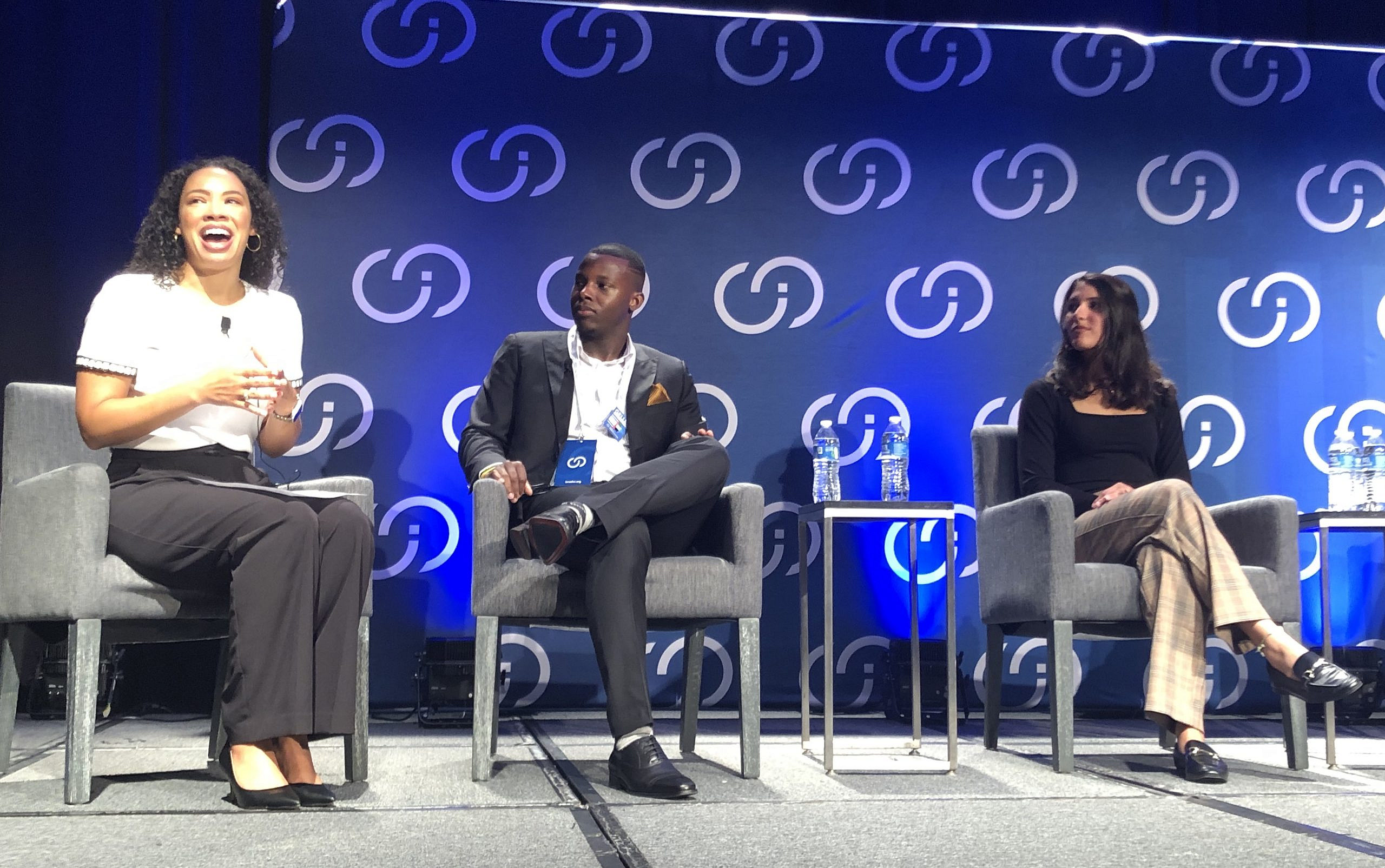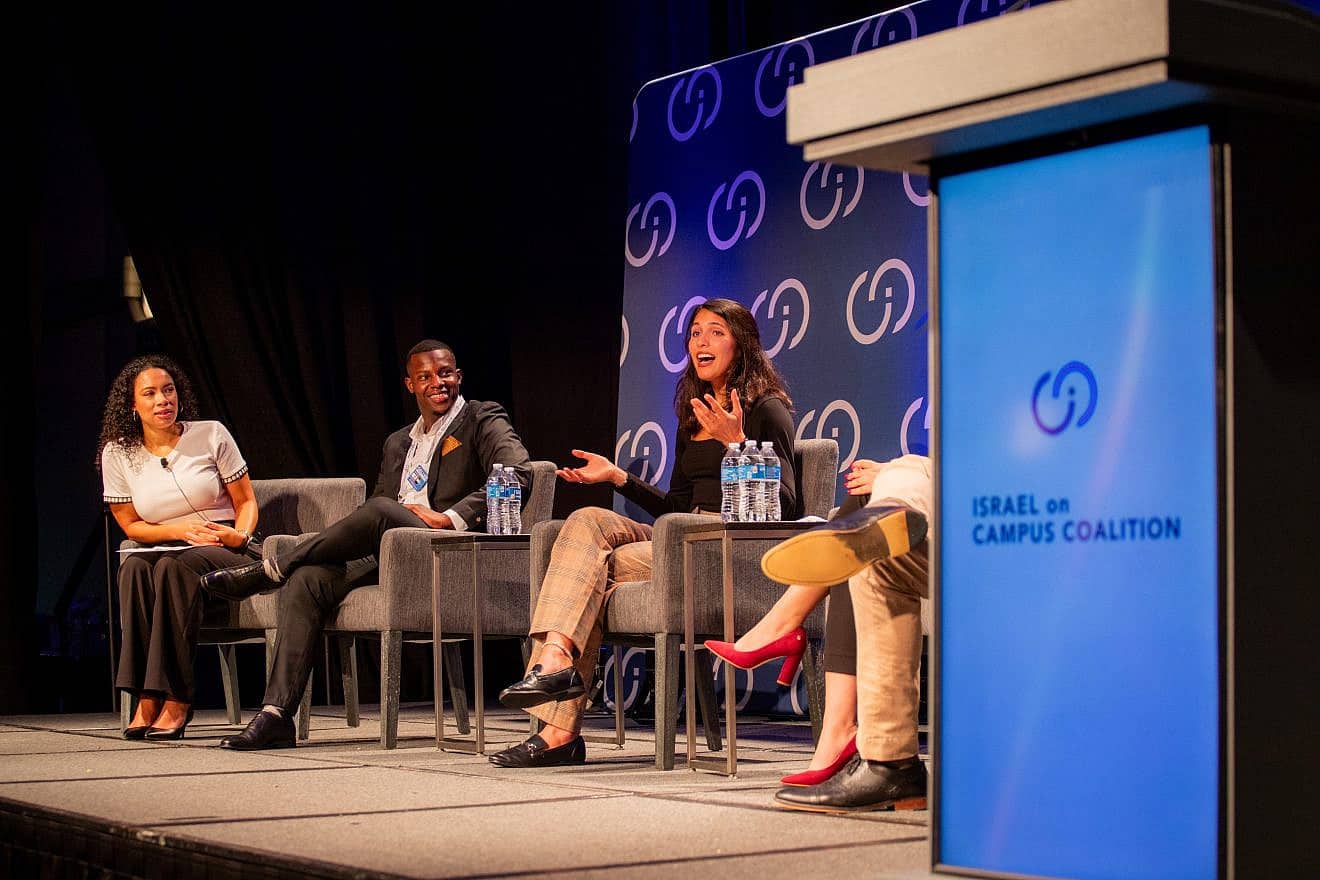So much for the conspiracy theory of Jews controlling the weather.
Some intending to go to the Israel on Campus Coalition National Leadership Summit this week had difficulty getting to Washington, due to intense storms and even a tornado watch for D.C.
“The only program flaw so far was one that was beyond our control—and that was the weather,” Jacob Baime, CEO of the coalition, told JNS.
Ian Hersh, chief management officer at the ICC, told JNS that the coalition began planning this year’s national summit as soon as the 2022 one ended. The initial plan was to cap attendance at 200 students, but when a “huge” waiting list emerged, Baime decided to double the size, with 400 students attending.
Hersh described the nonprofit, whose mission is “to inspire American college students to see Israel as a source of pride and empower them to stand up for Israel on campus,” as a digital-first organization. He noted that attendees can navigate the summit using a mobile application. “Everything is streamlined,” he said.
Baime said this year’s event has three main themes: the Abraham Accords; uniting against hate, including combating antisemitism; and “grappling with the tough issues and embracing nuance, and respecting the intelligence of the delegates.”
This year’s event not only has more attendees but 10 sessions—up from five last year—that students can attend daily after the primary presentations. A combined 60 speakers are addressing this year’s event, up from around 40 last year.

‘More accessible to students from all backgrounds’
In 2013, ICC had five staff members; it now employs 26. Destiny Albritton, the coalition’s national outreach director, joined five years ago. She told JNS that her religious values inspired her to advocate for Israel as an undergraduate.
“My faith is why I got involved in this movement,” she said.
Albritton told JNS that she had read her whole life about biblical figures, including Abraham, Esther, Moses and Nehemiah. “I realized that they became heroes by contributing to Jewish self-determination,” she said. “I realized that their story, and their cause, didn’t end when they stopped writing books of the Bible.”
Visiting Israel for the first time felt to Albritton like “the word of God coming to life,” she said. “When I participate in different Jewish holidays and traditions, I am able to participate in the context that Christianity was born into.”
At ICC, Albritton is responsible for making both the coalition and the summit “more accessible to students from all backgrounds, to students beyond the Jewish community.” That includes recruiting students from Christian and historically black colleges and universities, as well as those who attend state schools and are interested in international relations.

The coalition also collaborates with a variety of pro-Israel organizations, Baime told JNS. Speakers at the summit came from the Academic Engagement Network, Foundation for Defense of Democracies, Community Security Service, StandWithUs, Louis D. Brandeis Center for Human Rights Under Law, Hillel International, The Lawfare Project, Israel Institute and Tel Aviv Institute.
“One of the most important features of this conference is that we lift up the expert practitioners from our partner organizations,” he said.
‘Hungry for more content about civil rights, the law’
Six regional directors at ICC helped identify and register the 400 student attendees in what Baime called “an intensive process.”
The students come from such a range of backgrounds and experiences that Hersh told JNS that ICC accommodated some 13 kinds of dietary restrictions at the conference. ICC makes sure “we’re not just feeding vegetarians vegetable wraps,” he said.
“How hard is it to boil up some quinoa? You know, we need some protein, not just vegetables,” Baime, a vegetarian, interjected. “Literally, we think what if someone is a gluten-free, kosher vegan? We think through those because it happens.”
ICC also considers feedback after each event.
“One of the things we found the prior year is that students were hungry for more content about civil rights and the law,” Baime told JNS. “Last year, we had one session about it. This time we had six sessions.”
Albritton told JNS the conference has gone smoothly, and more importantly, the students are learning, enjoying themselves and meeting one another.
“We can’t control the weather, though,” she said.


























